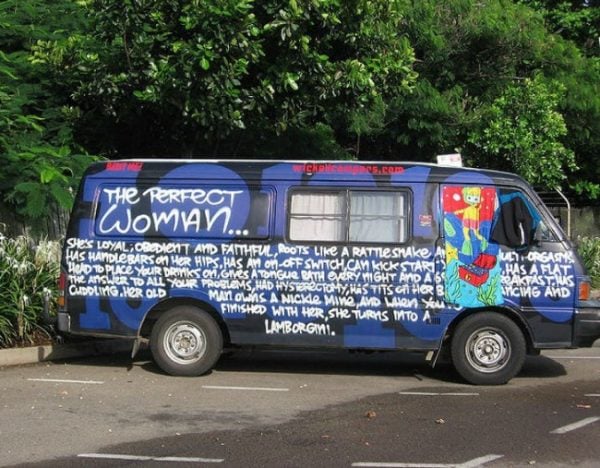
Lauren Gurrieri, RMIT University
Lingerie company Honey Birdette has been accused of “sexualising women” and its current storefront advertising campaign in suburban Australian shopping centres is described as depicting “soft porn”.
This latest scandal for the brand highlights the growing tension about the standards of sexual depiction considered acceptable in advertising.
Advertising in Australia is governed by a self-regulatory system in which a variety of codes are administered by the Advertising Standards Board. The board claims to represent community standards by appointing board members that represent a diverse cross-section of Australian society.
However, the system relies on consumers lodging complaints about advertisements to the Board which can only be made through the narrow guidelines provided. Yet even when consumers complain in droves about certain advertisements, such as the Ultra Tune advertisements that blatantly demean, sexualise and objectify women, complaints are often dismissed.
“Exploitative and degrading” depictions are not allowed under section 2.2 of the Australian Association of National Advertisers code of ethics, but questions remain about the adequacy of how these codes are interpreted and policed.
Exploiting loopholes and lag times
The lag time time between an advertisement being placed through media channels and the complaints process being followed means that the damage has already been done even if an advertisement is deemed to violate the code.
Companies are well aware of this, and often exploit this loophole as a way of generating further publicity for their brand. And as the case of Wicked Campers demonstrates, companies are not compelled to abide by the Advertising Standards Board’s decisions and can resume to business as usual, thereby calling into question the effectiveness of the process itself.

Top Comments
Perhaps they can protest using women’s bodies for advertising at the next slut walk?
They just need to diversify their advertising. Instead of constantly using gorgeous, buxom cisgender female models, they need to change it up. Introduce mandatory minimum standards for diversity in body size/shape, and of course inclusiveness for Trans models, and models who 'identify' as women, even if they have hairy backs and ned kelly beards.
Why?
Because women would like to see themselves reflected in advertising, not some fake, airbrushed piece of plastic.
Most women don’t have Ned Kelly beards for instance, I don’t think most women see transsexuals and feel that reflects them either.
Advertising is about building a relationship identification between the business and the consumer. It’s “My Store” or I use these cosmetics because, “I’m worth it”. By trying to reflect the image of every person you break down the ability of a consumer to identify with the brand as being theirs. Try marketing a perfume to young girls, women and older women and see if you can build the strongest brand loyalty. What teenage girl buys a scent grandma uses? How many retired women do you see shopping at Forever21, beard or no beard?
Does Mercedes need to advertise homeless people driving their cars for inclusion? Does that make any sense at all as an advertising exercise?
What exactly about the HB ads qualify them as "soft porn"? To describe them as such, and compare them to truly revolting advertising like Wicked Campers, is pure hyperbole (and detracts from the issue at hand).
The demeaning and sexualised poses. The expressions and positions that make a Woman look like she is there to please a man.
It’s not that difficult to work out really but I like to use this general rule of thumb - the difference between a picture you could safely hang up in your lunch room at work and one that you couldn’t.
I don't see anything demeaning or particularly sexualised about the pic running with this article. As for poses that make a woman look like she is there to please a man: not sure how this can be differentiated from making a woman look like she is there to please a woman, or making a woman look like she is there to please herself, but OK. You appear to think the subjectivity is obvious; I disagree.